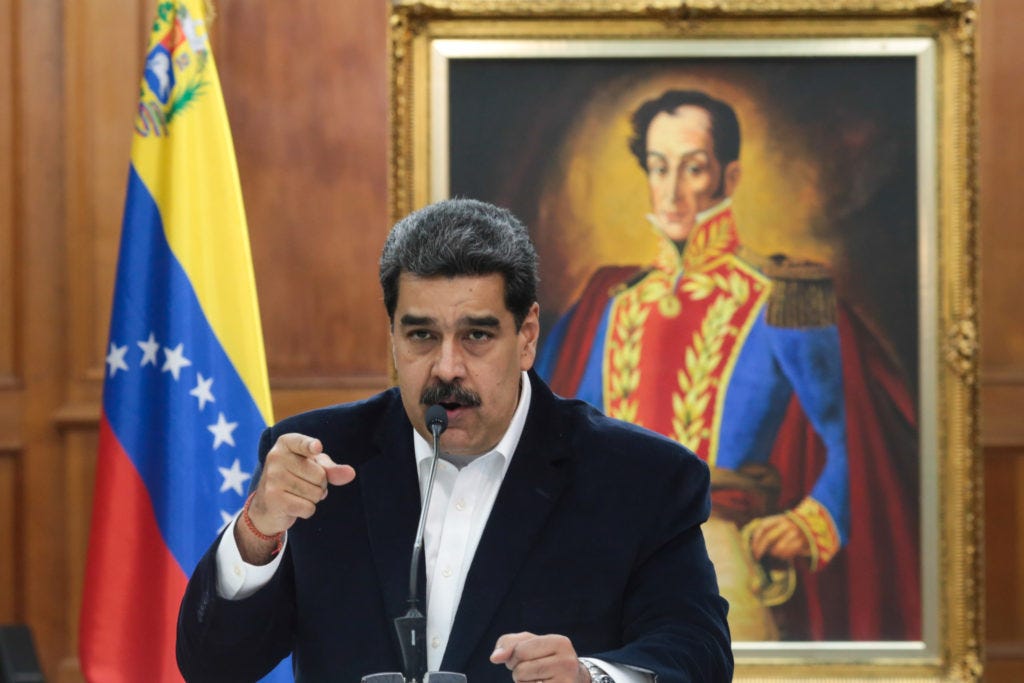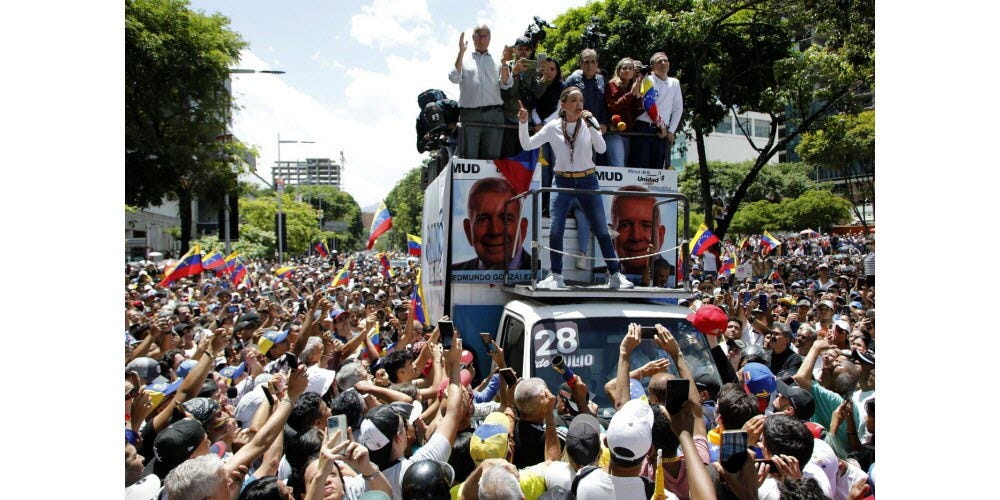Venezuela: the Rule of Terror
Nicolas Maduro hopes to stay in power by neutralizing the opposition
Foreword
It has been difficult to write about the situation in Venezuela in recent weeks, for many reasons. Partly because events are happening so quickly, the flow of information to analyze on a daily basis is significant. But also because the scale of the electoral fraud that has likely taken place and the repression of the opposition that follows can quickly give way to despair. Nevertheless, like the Venezuelans who are calling for a peaceful democratic transition, it is essential to remain optimistic! Here is a new article on the situation in Venezuela.
Two weeks after the presidential election on Sunday, July 28, Nicolas Maduro has still not recognized his defeat or provided proof of his victory announced on election night by the National Electoral Council (CNE), a body controlled by the government.

The CNE announced a victory for Maduro with 51% of the vote against 44% for opposition candidate Edmundo Gonzalez. However, neither the CNE nor the government provided the “actas”, the documents certifying the vote count in each electoral office.
For its part, the opposition led by Maria Corina Machado and Edmundo Gonzalez worked tirelessly to recover more than 70% of these “actas” the next day (and a few days later more than 83%), proving that Edmundo Gonzalez was the real winner of this election, with a large lead over Nicolas Maduro, in all the states of the country.
By quickly collecting these actas, the opposition was able to legitimize its victory at the polls with the Venezuelan population but also with the international community. A website was quickly set up allowing anyone to authenticate the actas recovered by the opposition. Each Venezuelan voter was therefore able to verify that their vote had been taken into account. These results have since been verified by numerous journalists and independent bodies who all agree that these are indeed the authentic results.
Large rallies have been held in Caracas and elsewhere in the country at the call of Maria Corina Machado, showing the extent of the support for the opposition. The woman who has become the face of the resistance to the Maduro regime remains determined and optimistic, while asking her supporters to demonstrate peacefully. She is convinced a new president will be in power on January 10, indicating that this fight for democracy will go all the way, “hasta el final”.

Meanwhile, Nicolas Maduro is betting on fear. The repression of political opponents has intensified significantly. According to various sources, 23 deaths were recorded between July 28 and August 8; and between 1,200 and 2,000 people have been arrested over the past two weeks, including some high-ranking members of the opposition.
Maduro hopes to discourage Venezuelans who are demanding change. The president has accused Maria Corina Machado and Edmundo Gonzalez of insurrection, conspiracy and terrorism and arrest warrants have been issued against them. During various press conferences, Nicolas Maduro has in turn accused Elon Musk and the X platform of wanting to destabilize Venezuela, asked Venezuelans to delete WhatsApp and even accused China, one of his few allies, of supporting fascism in Venezuela because its TikTok account was suspended. The Venezuelan leader is locking himself into an increasingly authoritarian posture and does not seem ready to give up power.
At this point, it is difficult to know how the situation in Venezuela will evolve. Nicolas Maduro is trying to weather the storm by muzzling the opposition, while Maria Corina Machado has called on Venezuelans around the world to gather again this Saturday, August 17, to maintain the pressure. There are two factors that now seem to be decisive in tipping the scales in favor of the opposition: the role of the army and international pressure.
Despite a formal call from the Venezuelan opposition to respect the will of the people, the armed forces remain loyal to Nicolas Maduro for the time being. A loyalty vigorously reaffirmed by General Vladimir Padrino Lopez a few days ago. The Venezuelan president has so far managed to maintain control of the army and the police, who are jointly leading an unprecedented repression operation. The question now is how far this repression will go and whether the opposition’s enthusiasm will gradually fade through arrests and threats. On the contrary, if the opposition can continue to mobilize Venezuelans over time, the armed forces could begin to challenge the repressive spiral initiated by Nicolas Maduro. However, for the opposition to remain active, it is essential that it be supported by the international community.
The announced victory of Nicolas Maduro is so far only recognized by a handful of countries, politically aligned with Venezuela. Among them, Russia, China, Iran, Bolivia, Cuba, Honduras and Nicaragua. Chile and Argentina have been the most critical countries towards Nicolas Maduro since the results were announced. Brazil, Colombia and Mexico seem to bet on a more cautious approach, asking that the proof of the results announced by the CNE be provided. In recent days, the three countries have begun an attempt at negotiations with Nicolas Maduro in order to try to establish impartial results. An initiative that has obtained the approval of Washington. However, Lula, Gustavo Petro and Andrés Manuel Lopez Obrador have not yet recognized the victory of the opposition. The three left-wing leaders seem to want to give Maduro the benefit of the doubt.
Celso Amorim, a diplomat and advisor to Lula, today raised the possibility of holding a new election, described as a “second round,” this time with the presence of observers from the European Union. Brazilian diplomacy believes that it is not possible to know who won the July 28 election. This scenario would go against a recognition of Edmundo Gonzalez’s victory and would certainly take several months to materialize since Nicolas Maduro has so far refused the presence of international observers for the presidential election.
The views and opinions expressed in this publication are solely those of the author. They do not represent, and should not be construed as representing, the official positions of the author's current or any previous company.




